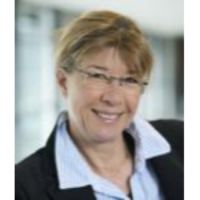
Monika Weiner is a science writer based in Munich, Germany. She studied Geology at the University of Munich and holds a Diploma. Following her degree she worked as an editor. Later she became a fulltime science journalist and reporter working with different German newspapers, popular science magazines and broadcasting stations.
In 1991/92 she was a Fellow in the Knight Science Journalism program at MIT, a nine month midcareer program for science writers. While at MIT she focused on the history of astronomy, astrophysics and psychology.
Back in Munich she continued writing about science, technology and humanities. Over the course of her writing she has covered a variety of topics, from the beginning of the universe, the difference between mystery and science, natural hazards and how we deal with them, new materials for future traffic and building, to the history of pasta. In addition to her freelance work she specializes in corporate publishing, and currently is the Editor of the English-language Fraunhofer Magazine.
Monika Weiner is also the author and co-author of several books about history and the Brockhaus Encyclopaedia about the Future of our Planet.
Talks

The day I got here seems as if it were yesterday. The three months have flown by. Every day was packed with new experience, new people, new information. I enjoyed every minute.
In my first talk I did my best to introduce the visiting scientists at KITP to the world of journalism. This is a world that has changed a lot within the last century, and follows its own laws of nature. It turns out that these journalistic laws of nature are very different from those of physics, since the main force of journalism is news, with its application and impact on everyone’s life.
In my second and my third talk I tried to give the attending physicists an idea of a journalist’s practical work. We discussed the criteria for best practice in writing press releases and giving interviews to journalists. We did some role-playing that was not only fun, but also the start of many fruitful discussions about the nature of science and journalism.
Meeting so many physicists was a great chance for me to learn a lot about exotic things like frustrated magnets, cold atoms, gravitational waves, strings and supernovae. Blackboard lunches were a great opportunity to figure out what people work on. I also got a lot of information just talking with the scientists, and they were really helpful in explaining their research.
I conducted more than a dozen interviews with scientists on an individual basis. Some topics were so interesting several sessions were required. In this way I learned that theoretically time can run backwards, Newton’s apple is related to circulating black holes, and atoms can be there and not be there at the same time. I generated lots of new story ideas, some realized right away. For example, I did a piece about string theory to be published soon. But this is just the tip of the iceberg. My filled notebooks will surely provide the foundations for future stories, and I will stay in touch with many of the scientists I met here.
I also interviewed other scientists on the UC Santa Barbara campus, and collected story ideas (for example) about topics in geology and anthropology I also did research on the Las Cumbres Observatory Global Telescope nearby in Goleta. In my free time I enjoyed the privilege of reading stacks of textbooks about cosmology and astrophysics to broaden my understanding.
Science is very important, but it is not everything. My stay at KITP would not have been possible without the invitation from then Director David Gross - thank you David! And it would not have been the enjoyable experience it was without the staff who answered my millions of questions before I even got here. Once I arrived, everyone helped with advice, hardware support or just a smile. I would be remiss if I did not take this opportunity to thank all the staff at KITP for help and support. I would especially like to thank Sarah Vaughan, who made so many difficult things so easy, Lars Bildsten, Joe Polchinski, Jean-Pierre Hebert, Kevin Barron, Dan Hone, Marty Einhorn, Tony Zee, David Awschalom, Andy Howell, Steve Giddings, David Auston and many others for friendship and stimulating conversations. Guys - you are great I’ll always remember you.
Monika Weiner, Journalist in Residence August 27 to November 21, 2012